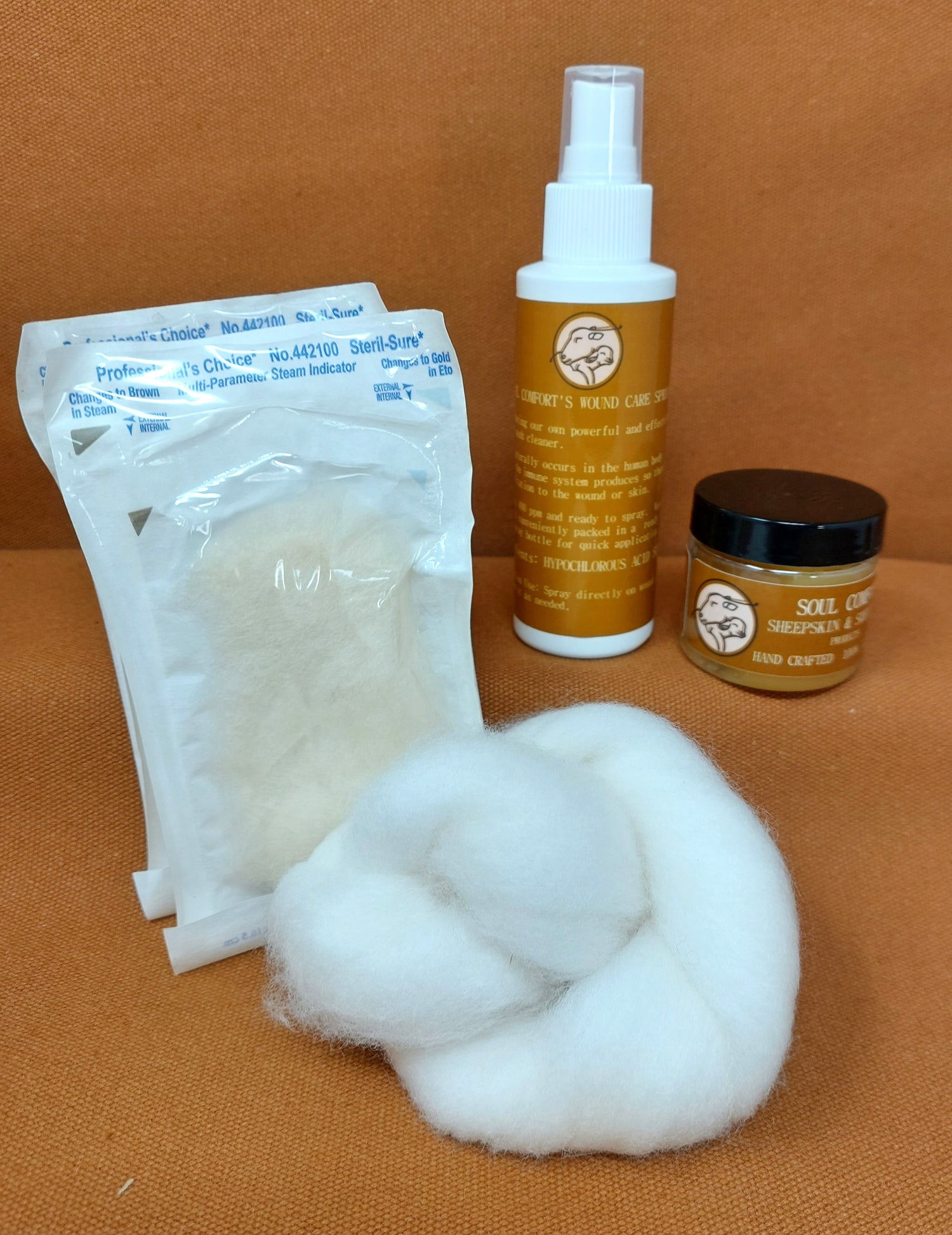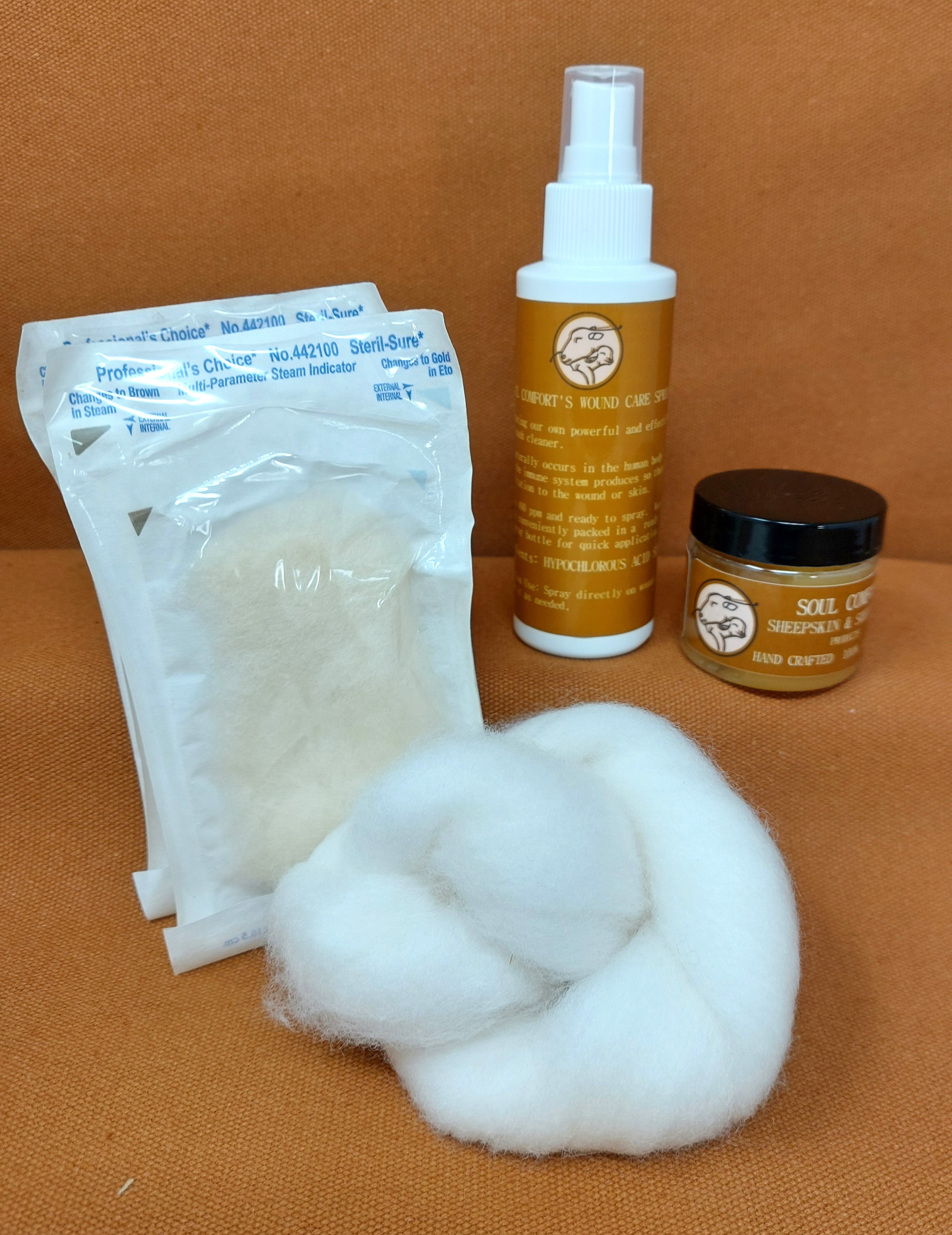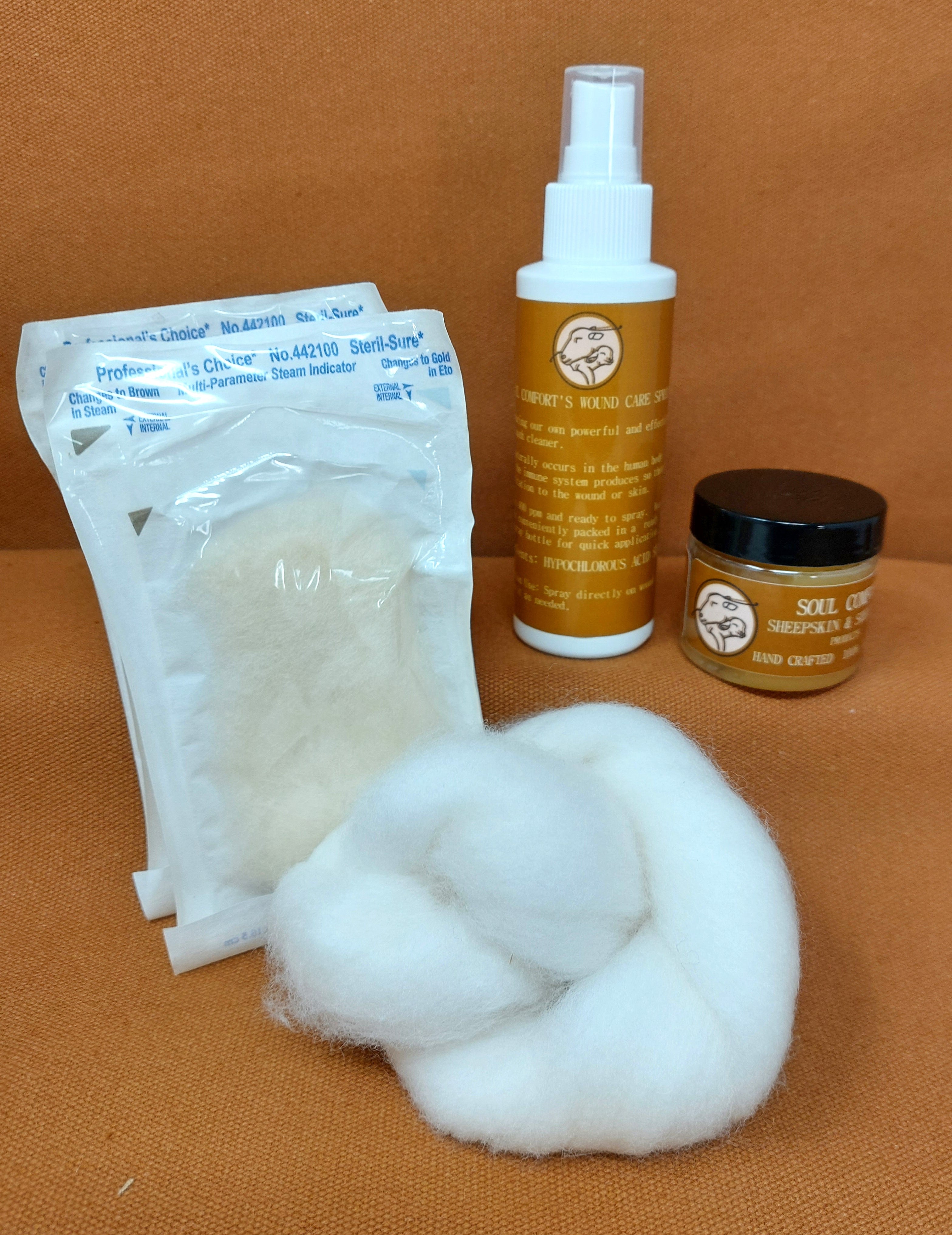
Hydrous Lanolin
Nourish and Soothe your skin naturally.
Lanolin, a natural substance sheep produce to protect their wool, has long been recognized for its healing properties. This waxy substance is not only beneficial for sheep but also offers numerous benefits for human skin. Due to its unique properties and ability to promote healing, lanolin is commonly used in ointments and skincare products.
Moisturizing and Hydrating
Lanolin, with its semi-occlusive nature, forms a protective barrier on the skin, allowing it to breathe while locking in moisture. This unique ability to retain water up to 400 times its weight ensures deep and long-lasting hydration, promoting optimal healing and minimizing scarring. Lanolin is known for its nourishing and soothing properties. It helps replenish the skin's natural oils and restores moisture balance. When applied to the wound, the protective barrier it supplies encourages healing.
Antimicrobial
l Moreover, lanolin has been found to possess potent antimicrobial properties, effectively inhibiting the growth of bacteria and fungi on the skin. This makes it an excellent choice for individuals with sensitive or compromised skin, as it significantly reduces the risk of infections.
Compatibility with the skin
In addition to its moisturizing, emollient, and antimicrobial properties, lanolin is rich in vitamins and minerals that nourish the skin. It contains vitamin E, known for its antioxidant properties and ability to protect the skin from free radicals. Lanolin also contains vitamin D, which is essential for maintaining healthy skin.
As a versatile and effective ingredient in ointments and skin care products, lanolin is crucial in maintaining skin health. Its unique ability to lock in moisture, soothe the skin, inhibit microbial growth, and provide essential nutrients makes it an invaluable addition to any daily wound care routine.
How to use:
-clean and apply a thin layer of lanolin after the application of the hypochlorous spray
-If applying loose wool to the affected area, apply the lanolin to the wool first, then place it on the wound.




Leave a comment
This site is protected by hCaptcha and the hCaptcha Privacy Policy and Terms of Service apply.